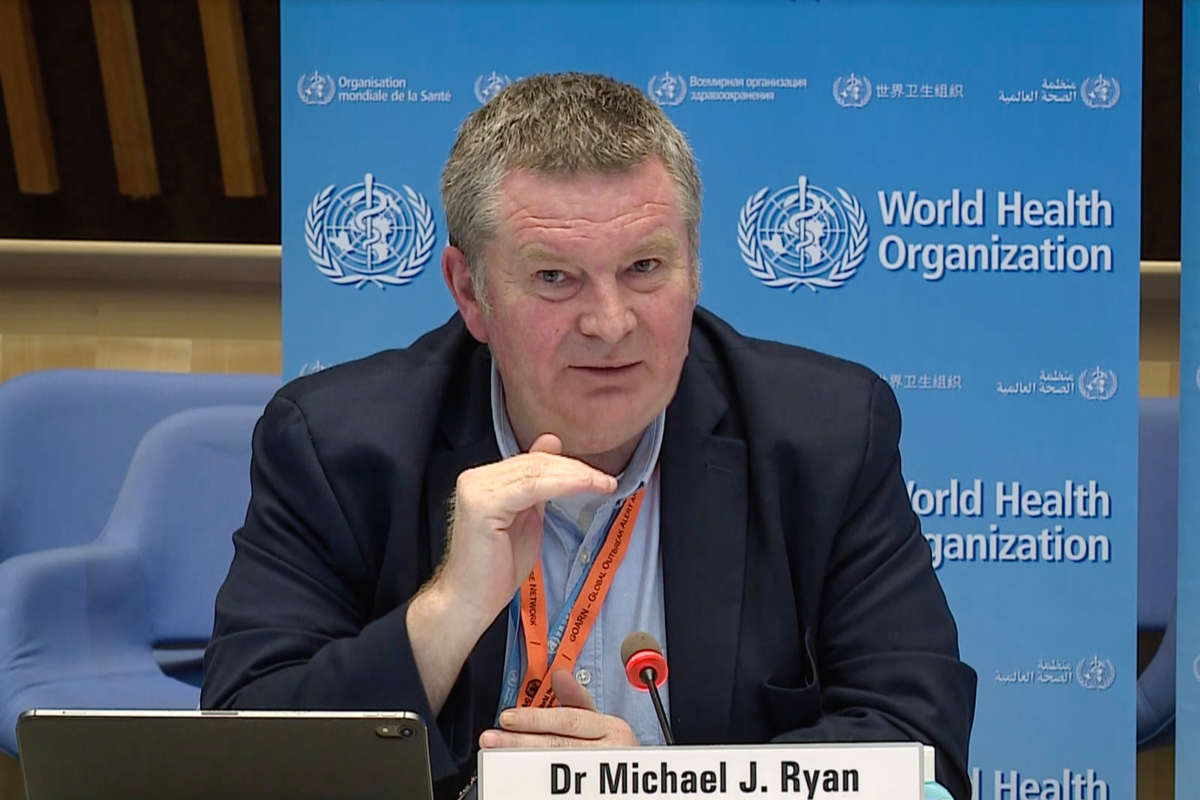Did you know that Truthout is a nonprofit and independently funded by readers like you? If you value what we do, please support our work with a donation.
A high-ranking member of the World Health Organization (WHO) encouraged people against seeking out a drug frequently touted by President Donald Trump, who, without evidence backing up his claims, has called it a “game-changer” in the fight against coronavirus.
Michael Ryan, executive director of the WHO Health Emergencies Program and a former trauma surgeon and infectious disease specialist, explained this week that hydroxychloroquine should not be taken by individuals unless they’re part of a study on the drug’s efficacy against COVID-19, or told to do so by a healthcare professional.
“Every sovereign nation, particularly those with effective regulatory authorities, is in a position to advise its own citizens regarding the use of any drug…. I would point out, however, at this stage, [neither] hydroxychloroquine, nor chloroquine, have been, as yet, found to be as effective in the treatment of COVID-19 or in the prophylaxis against coming down with the disease,” Ryan said.
“In fact, the opposite” may hold true, he added, “in that warnings have been issued by many authorities regarding the potential side effects of the drug, and many countries have limited its use to that of clinical trials […] or under the supervision of clinicians in a hospital setting specifically for COVID-19.”
Ryan urged individuals to resist the urge to take the medicine themselves.
“As WHO, we would advise that, for COVID-19, these drugs be reserved for use within such trials,” he added.
Ryan’s statement is a direct contradiction to what Trump has been saying about the drug as of late. The president claimed on Monday that he’s been taking the drug himself for “a couple of weeks” now.
“I take it. I hope to not be able to take it soon because, you know, I hope they come up with some answer,” Trump added. “But I think people should be allowed to.”
Later in the week, Trump was asked why he felt that his promotion of the drug, which many, including the Food and Drug Administration, have warned people not to seek out without a physician’s approval, was appropriate, given that he himself had no medical expertise.
“I’ve worked with doctors,” Trump responded.
In those same comments, the president blasted a study that looked at hydroxychloroquine’s effects on VA hospital patients for the treatment of coronavirus, which showed a higher mortality rate among those taking the drug versus those being treated in conventional ways.
“They were giving it to people that were in very bad shape,” Trump suggested. “They were very old, almost dead.”
He also lashed out at the study itself, calling it a ‘Trump enemy’ statement.
The limited studies of the drug’s use for those suffering from coronavirus have suggested it isn’t the safest route to take, but more research on the drug has been desired. Unfortunately, because of Trump’s statements — and due to the media having to correct his errant words on the subject — a number of individuals have been reluctant to take part in studies involving hydroxychloroquine.
In addition to bad-mouthing studies on the drug that he disagrees with, Trump may also be retaliating against medical professionals in the federal government who have the audacity to stand up against his errant statements about hydroxychloroquine.
Rick Bright, who used to head the Department of Health and Human Services’ Biomedical Advanced Research and Development Authority, claimed he was removed from his post because he questioned Trump’s promotion of the drug and wouldn’t go along with it himself.
“I also resisted efforts to fund potentially dangerous drugs promoted by those with political connections,” Bright said. “Specifically, and contrary to misguided directives, I limited the broad use of chloroquine and hydroxychloroquine, promoted by the administration as a panacea, but which clearly lack scientific merit.”
Press freedom is under attack
As Trump cracks down on political speech, independent media is increasingly necessary.
Truthout produces reporting you won’t see in the mainstream: journalism from the frontlines of global conflict, interviews with grassroots movement leaders, high-quality legal analysis and more.
Our work is possible thanks to reader support. Help Truthout catalyze change and social justice — make a tax-deductible monthly or one-time donation today.
